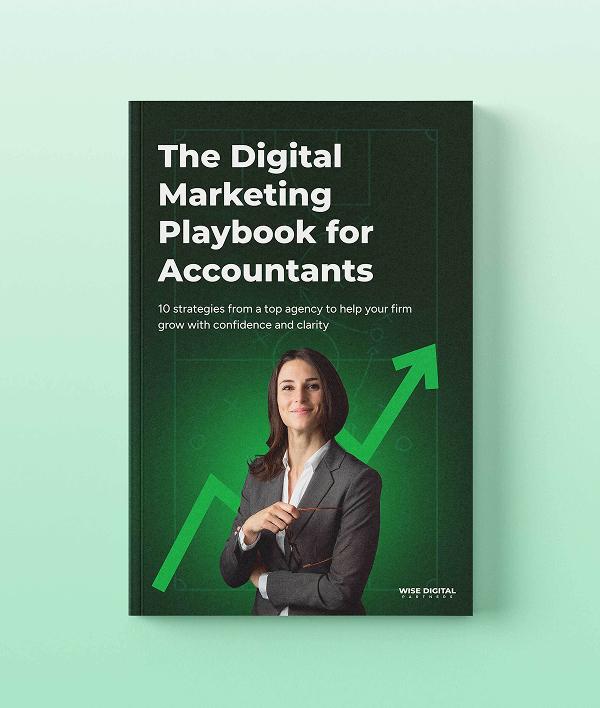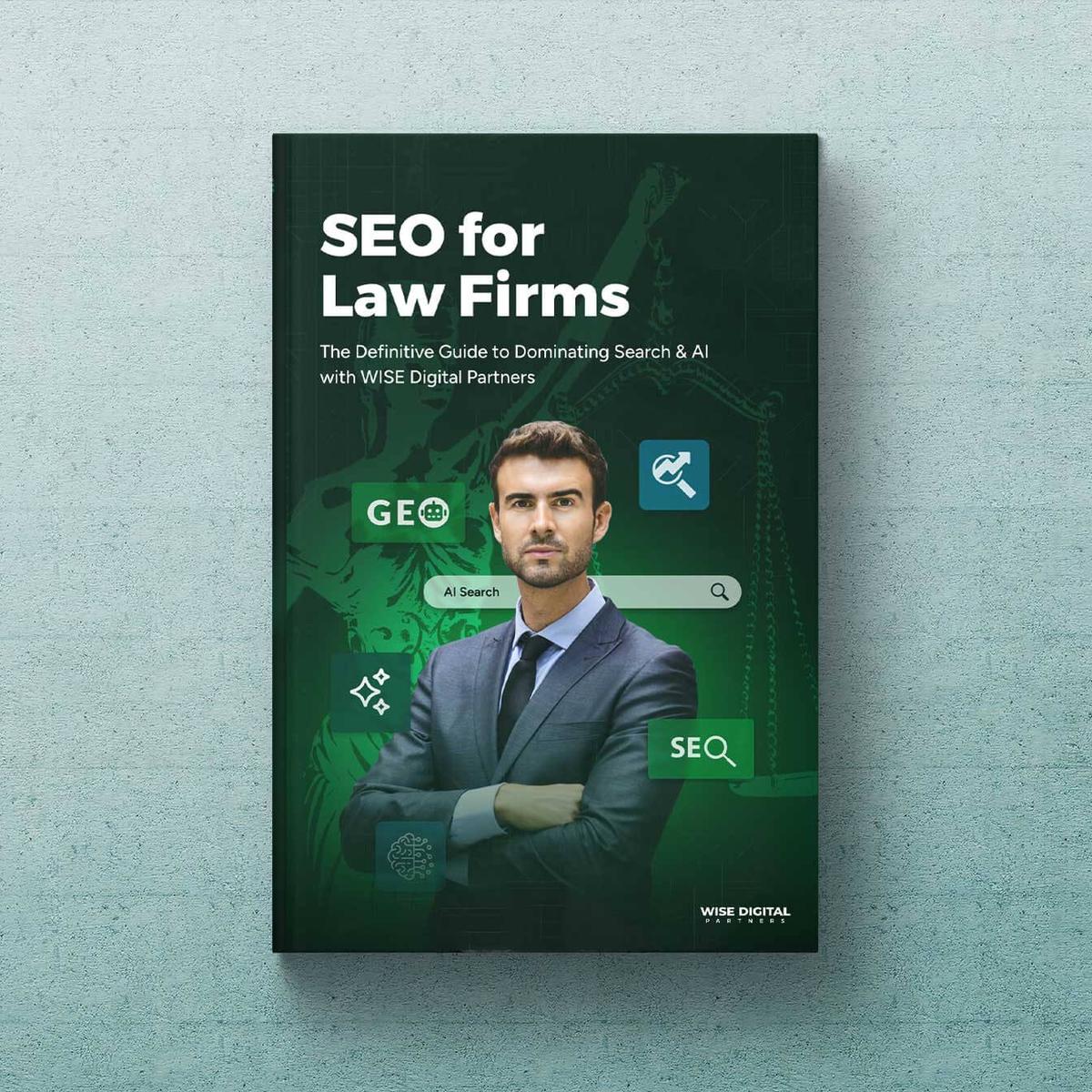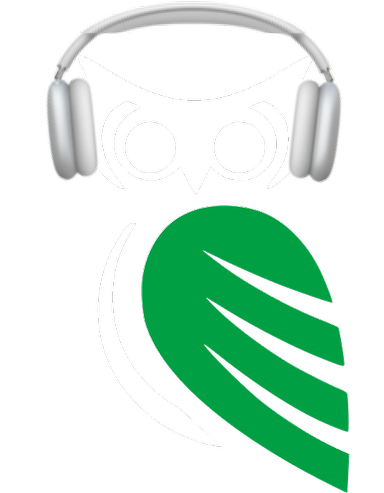It's Time to Get WISE.
A quick, honest call to assess your needs and point you in the right direction—no sales pitch. Best suited for:
- Established businesses with a defined marketing budget
- Businesses prepared to grow and scale
A deep dive with a top expert to uncover gaps and map a smarter path forward.
- Includes a $250 digital audit covering your website, SEO, local presence, and online performance—yours to keep.
- Get smart, actionable ideas you can apply to your business right away.

Enter the email you would like your guide sent to:

Enter the email you would like your guide sent to:

Enter the email you would like your guide sent to:
Apply Today
Please fill out the information below. Someone on our team will reach out in 3-5 business days to schedule a call if we see a good fit.
Book Patrick Dillon
Thanks for your interest in booking WISE CEO Patrick Dillon on your podcast! Please complete the form below, and a team member will contact you shortly.

Remove Negative Reviews.
7 Keys to Win Digital Marketing in Any Environment

December 10, 2020
- 8 min read

2020 has taught business owners, especially small business owners, the importance of a well-developed and well-managed digital marketing strategy. The pandemic created unprecedented changes to the way we attract customers, clients, patients and buyers of our products and services. Foot traffic is a fraction of what it used to be. Referrals are down. In-person networking vanished. We suspect not much will change in the first half of 2021, so it poses the question, how are you preparing your business for marketing in the new year.
WISE Digital sits at the forefront of digital marketing efforts for over 100 businesses in several dozen industries. This has given us unique insights into what really makes a difference. We’ve identified 7 key areas required to win online. As you look to revamp your digital strategy in 2021, consider how you score on each discipline.
#1 Brand & Messaging
Develop a strong brand by knowing yourself and the best that your business has to offer, and couple that with a deep understanding of your ideal customer’s needs. Branding is more than your logo and color scheme. Well-designed visual elements & well-crafted words make your business look more professional, and by extension, more trustworthy. Premium businesses recognize the need to understand varying customer personas. This helps them craft the right messaging to attract the best customers in a continuous way.
Additionally, your brand identity includes defining the following elements:
- Brand Name
- Tone
- Voice
- Logos
- Typography
- Colors
- Imagery
- Sensory elements like taste and smell for certain industries
Investing in brand identity helps anchor your business. It also makes it easier for you down the road to create content for your website, social media, and other channels including offline or print collateral. If you’re unclear about your brand identity, this should be a focal point for your business heading into 2021.
#2 Website
In 2021, your website could be a great asset or a liability. At the bare minimum, your website needs to stand out against your competitors. Look, feel, imagery, copy, and power statements all give a reason to stay on your website, look around & take action. Good technology or construction is also important. Pages must load quickly and smoothly, navigation needs to be intuitive, and security is a requirement by users and by major traffic sources like Google and Facebook. A website can be visually stunning, but if it doesn’t offer a pleasant user experience, you risk turning customers away.
When it comes to mobile, your users’ experience has to be intuitive with content and elements that are tailored to their needs. Note that by March 2021, websites that are desktop only will completely drop out of Google’s index. Google uses “mobile-first indexing, [which] means Google predominantly uses the mobile version of the content for indexing and ranking.” And by May 2021, mobile website speed and performance will be even more of a factor for Google search visibility.
The bottom line is that websites cannot be built by one person. Building a great website takes experts in digital strategy, copy, design, SEO, development and more. Don’t be fooled by the person that says they can do it all. That person does not exist, just like a house cannot be built by one person. You need an architect, general contractor, electrician, plumber, and more skilled laborers.
#3 SEO
You need to be found online for the things your offer and sell, period. Social media can’t hold a candle to all the people searching for what you already offer. The trick is that it takes talented people who know how to break down how your customers search to reveal opportunities. That research allows us to peer into what terms and phrases your ideal customers use to find the products and services you offer. It takes an understanding of the state of the market and industry that you’re in. This is not guesswork but rather a data-driven effort.
In addition to keywords, look at search intent, or what people are intending to discover when they search, based on the terms and phrases they use. This means that delivering value to your customers is of utmost importance, plus supporting them at every stage of the funnel. This includes post-acquisition content to keep customers coming back. Julia McCoy of Content Hacker says:
“We retain interest and build trust with our readers when our content is the most comprehensive, practical, and useful piece they’ve interacted with when searching Google. That kind of content requires focus, time, commitment, investment, to create.”
Your SEO strategy has to take into account how Google perceives your entire online presence, from your website to your listings, and whether it answers people’s questions or meets their needs. As the economy and social climate changes, people will always have questions. Your business has to be in a position where users can find you easily and where you’re ready to answer these questions.
#4 Listings
Business Directory Listings is the process of making sure your business is correctly listed on all directory websites. At WISE, we manage more than 40 of them for a typical client. Why so many? Because of the dozens of signals built into Google’s ranking algorithm, business listings accuracy makes up 51% of the formula for local businesses. Consistency across all your listings is important as Google needs to understand all of the information out there related to you and your business. Google determines local ranking through a combination of the following:
- Relevance. Does your business profile match what the searcher is looking for? Here it’s important to make sure that your information is clear and complete.
- Proximity. How close is the business to the searcher?
- Prominence. This refers to how well-known the business is. Per Google, prominence “is also based on information that Google has about a business, from across the web, like links, articles, and directories.”
Get it right and you win their favor, traffic, and lots of new customers. Listings like a fully filled out Google My Business profile impacts local SEO, which can help you rank for local search results. You can’t pay to get better local rankings in Google but by ensuring that your information is clear, complete, and consistent, you increase your chances of improving. Google also takes into account reviews, which leads us to the next item.
#5 Reviews
How do you become the most reviewed business in your category? Reviews are a way to show off the quality of your products, services, and more. They also make up 24% of Google’s local search formula, so getting this one right helps you leapfrog your competition. For an even bigger advantage over your competitors, consider adding a first-party review platform to your website. This allows your clients/customers to leave reviews directly on your website and see other people’s positive reviews. Our platform also gates negative reviews from getting out by allowing only the 5-star review to hit sites like Yelp and Google.
For better or for worse, reviews have a significant impact on your business. Consumers want to minimize risks and maximize their purchase, and reviews are part of the decision-making process. You can learn more about why online reviews matter here.
#6 Visitor Growth
“If you build it, they will come” is NOT true in digital marketing. Google is a trillion dollar company. Their rankings create and decimate industries. If you want their attention, you need to put a great foundation together online by doing steps 1 to 5 in an exceptional way, but you also need to have a plan in place to show Google and the world that you’re ready for more business.
Social media is the same way it requires ongoing energy and effort. And the next big platform will be no different. From adding more content and copy via blogging and developing a successful social media strategy, to creating and managing a successful online advertising program, every business needs a traffic plan. The days of building a website and moving on never existed, so stop thinking this is a one-time effort. It is critical that you find a team that can help manage your monthly marketing budget to maximize your return on investment.
#7 Strategy
Businesses have changing marketing needs over time. There are many reasons for this. Business life cycles change, products and services change, messaging and customer targeting change over time, and as a business grows, its demands for new customers grow. How will you manage all of these efforts now, and continuously into the future?
It takes a sophisticated expert to review the data and provide ongoing strategic decisions about what is needed next. It also takes a team of experts to keep the work going across multiple disciplines. Agencies and teams that have managed business growth cycles before have a huge advantage over others that haven’t been through this before.
Set Yourself Up To Win
We can help you see into the future and leapfrog your competition. When it comes to the seven digital marketing disciplines we’ve just discussed, it pays to seek out an affordable partner who can scale with you. Maybe WISE Digital is that Partner.
Exploring your options with us doesn’t cost a penny, but it could transform your business forever. Contact us for a free consultation and see how we can set you up for success in 2021.
Share
Subscribe to WISE Insights
Stay ahead of the digital marketing curve and never miss a lucrative trend or insightful tidbit – subscribe to our WISE blog!
Keep Reading
Build. Grow. Soar.
Get WISE about digital marketing with advanced services, industry experts, and cutting-edge tools designed for long-term, sustainable growth.




